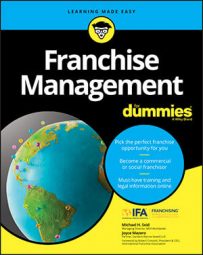- Social purpose corporation
- Low-profit limited liability company (L3C)
- Benefit corporation
- Cooperative
- Hybrid
- Incentives between franchisor and franchisee are better aligned, which drives performance at all levels of the system.
- The franchise system is funded as it would be in a commercial franchise from continuing fees and supply chain revenue.
- Donor funds can be used more efficiently to create direct subsidies for the poor through insurance and other programs so that more people can access products and services delivered by the franchise.
- As a consumer offering, there is a greater incentive for the local franchisee to meet brand standards and consumer expectations.
- The franchisor uses third-party grants and donations to cover its operating costs.
- The franchisee is subsidized, reducing some of the profit pressure on the business.
Also, because social franchising relies to a great extent on donations, any restrictions on donor funding or requirements by donors looking to make changes to the underlying system to meet their unique views of how they want the products and services they want to support delivered can have a negative impact on the social system overall. This routine requirement, often factored into donor funding, can be extremely damaging within a social franchise structure.
Ideally, over time a social franchise will deliver both social and financial returns to stakeholders (often referred to as double bottom line). Financial results are critical to the mission because it is financial success at the unit level that drives expansion to more franchisees in additional markets. Through scaling (developing sufficient locations to service the market and create an economic base for the system), the additional locations will increase the overall social impact of the franchise system.
Social franchisees, like commercial franchisees, are local business owners who operate their franchised business at a profit. Although the social mission of the business may be important to them, because the business is generally their primary source of income, the social mission is usually secondary to their profit incentive.
Therefore, in selecting social franchisees, in addition to all the other requirements found in the selection of commercial franchisees, the social franchisor must ensure that the franchisee understands and accepts the critical need of the social mission. It is because of the profit incentive that many social franchises are started — not to solve a social need, but because the franchisor saw the social need as a business opportunity.Again, because of its adaptive nature, franchisees can be single-unit or multi-unit owner operators but can also include social investors seeking to own and operate multi-unit operators and who will employ the professional staff working within the local operations.

